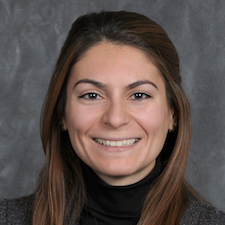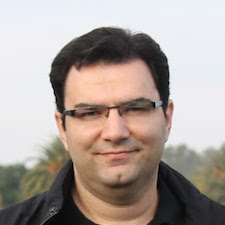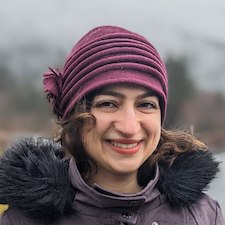Introduction
There is a great deal of interest in analyzing data that is best represented as a graph.
Examples include the WWW, social networks, biological networks, communication networks,
transportation networks, energy grids, and many others. These graphs are typically
multi-modal, multi-relational and dynamic. In the era of big data, the importance of being
able to effectively mine and learn from such data is growing, as more and more structured
and semi-structured data is becoming available. The workshop serves as a forum for
researchers from a variety of fields working on mining and learning from graphs to share and
discuss their latest findings.
There are many challenges involved in effectively mining and learning from this kind of
data, including:
- Understanding the different techniques applicable, including graph mining algorithms, network embeddings, graphical models, latent variable models, matrix factorization methods and more.
- Dealing with the heterogeneity of the data.
- The common need for information integration and alignment.
- Handling dynamic and changing data.
- Addressing each of these issues at scale.
Traditionally, a number of subareas have contributed to this space: communities in graph mining, learning from structured data, statistical relational learning, inductive logic programming, and, moving beyond subdisciplines in computer science, social network analysis, and, more broadly network science.
Schedule
Long Beach Convention & Entertainment Center - Grand B
| Morning Sessions | |
|---|---|
| 8:00-8:15am | Opening Remarks |
| 8:15-9:00am |
Keynote: Jie Tang Self-supervised Learning and Pre-training on Graphs |
| 9:00-9:30am | Contributed Talks Qingkai Zeng et al. Completing Taxonomies with Relation-Aware Mutual Attentions Rishabh Jain et al. Neural Priority Queues for Graph Neural Networks (GNNs) |
| 9:30-10:00am | Coffee Break |
| 10:00-10:45am |
Keynote: Wei Wang TBD |
| 10:45-11:30am |
Panel Liang Zhao (Emory), Zhangyang Wang (UT Austin), Wei Cheng (NEC lab), Meng Jiang (Notre Dame) |
| 11:30-12:00pm | Poster Session 1 | 12:00-1:00pm | Lunch Break |
| Afternoon Sessions | |
|---|---|
| 1:00-1:45pm |
Keynote: Karthik Subbian Practical Challenges in Graph Representation Learning |
| 1:45-2:15pm | Contributed Talks Prasita Mukherjee et al. OCTAL: Graph Representation Learning for LTL Model Checking Jing Zhu et al. SpotTarget: Rethinking the Effect of Target Edges for Link Prediction in GNNs |
| 2:15-3:00pm | Poster Session 2 |
| 3:00-3:30pm | Coffee Break |
| 3:30-4:15pm |
Keynote: Leman Akoglu Expressive, Scalable, and Interpretable Graph Embeddings |
| 4:15-4:40pm | Closing Remarks |
Keynote Speakers

Jie Tang
Professor
Tsinghua University

Wei Wang
Professor
UCLA

Leman Akoglu
Associate Professor
CMU

Karthik Subbian
Senior Principal Scientist
Amazon
Accepted Papers
Active Learning for Graphs with Noisy Structures
PDF
Hongliang Chi, Cong Qi, Suhang Wang and Yao Ma
Keywords: Graph Neural Networks, Active Learning, Noisy Learning
title={Active Learning for Graphs with Noisy Structures},
author={Hongliang Chi, Cong Qi, Suhang Wang and Yao Ma},
booktitle={Proceedings of the 19th International Workshop on Mining and Learning with Graphs (MLG)},
year={2023}
}
SpotTarget: Rethinking the Effect of Target Edges for Link Prediction in GNNs
PDF
Jing Zhu, Yuhang Zhou, Vassilis Ioannidis, Shengyi Qian, Wei Ai, Xiang Song and Danai Koutra
Keywords: Link Prediction, Graph Neural Network, Overfitting, Distribution Shift, Data Leakage
title={SpotTarget: Rethinking the Effect of Target Edges for Link Prediction in GNNs},
author={Jing Zhu, Yuhang Zhou, Vassilis Ioannidis, Shengyi Qian, Wei Ai, Xiang Song and Danai Koutra},
booktitle={Proceedings of the 19th International Workshop on Mining and Learning with Graphs (MLG)},
year={2023}
}
Completing Taxonomies with Relation-Aware Mutual Attentions
PDF
Qingkai Zeng, Zhihan Zhang, Jinfeng Lin and Meng Jiang
Keywords: taxonomy completion, mutual attention, concept definition, heterogeneous interactions
title={Completing Taxonomies with Relation-Aware Mutual Attentions},
author={Qingkai Zeng, Zhihan Zhang, Jinfeng Lin and Meng Jiang},
booktitle={Proceedings of the 19th International Workshop on Mining and Learning with Graphs (MLG)},
year={2023}
}
FiGURe: Simple and Efficient Unsupervised Node Representations with Filter Augmentations
PDF
Chanakya Ekbote, Ajinkya P. Deshpande, Arun Iyer, Ramakrishna Bairi and Sundararajan Sellamanickam
Keywords: graph neural networks, contrastive learning, kernel methods
title={FiGURe: Simple and Efficient Unsupervised Node Representations with Filter Augmentations},
author={Chanakya Ekbote, Ajinkya P. Deshpande, Arun Iyer, Ramakrishna Bairi and Sundararajan Sellamanickam},
booktitle={Proceedings of the 19th International Workshop on Mining and Learning with Graphs (MLG)},
year={2023}
}
Seq-HyGAN: Sequence Classification via Hypergraph Attention Network
PDF
Khaled Mohammed Saifuddin, Corey May, Farhan Tanvir, Muhammad Ifte Khairul Islam and Esra Akbas
Keywords: Hypergraph attention network, Sequence learning, Graph learning
title={Seq-HyGAN: Sequence Classification via Hypergraph Attention Network},
author={Khaled Mohammed Saifuddin, Corey May, Farhan Tanvir, Muhammad Ifte Khairul Islam and Esra Akbas},
booktitle={Proceedings of the 19th International Workshop on Mining and Learning with Graphs (MLG)},
year={2023}
}
From random-walks to graph-sprints: a low-latency node embedding framework on continuous-time dynamic graphs
PDF
Ahmad Naser Eddin, Jacopo Bono, David Aparício, Hugo Ferreira, João Ascensão, Pedro Ribeiro and Pedro Bizarro
Keywords: Continuous-time dynamic graphs (CTDGs), Streaming graphs, Graph representation learning, Graph feature engineering, Graph Neural Networks
title={From random-walks to graph-sprints: a low-latency node embedding framework on continuous-time dynamic graphs},
author={Ahmad Naser Eddin, Jacopo Bono, David Aparício, Hugo Ferreira, João Ascensão, Pedro Ribeiro and Pedro Bizarro},
booktitle={Proceedings of the 19th International Workshop on Mining and Learning with Graphs (MLG)},
year={2023}
}
A Heterogeneous Graph-based Framework for Scalable Fraud Detection
PDF
Phanindra Reddy Madduru and Naveed Janvekar
Keywords: Graph Neural Networks, Heterogeneous Relational Graph Convolution Networks, Neural Networks, Fraud Detection, Mini-batch, Fraudulent behavior, Risky relationships, E-commerce marketplaces, Model Scalability, Large datasets
title={A Heterogeneous Graph-based Framework for Scalable Fraud Detection},
author={Phanindra Reddy Madduru and Naveed Janvekar},
booktitle={Proceedings of the 19th International Workshop on Mining and Learning with Graphs (MLG)},
year={2023}
}
Editable Graph Neural Network for Node Classifications
PDF
Zirui Liu, Zhimeng Jiang, Shaochen Zhong, Kaixiong Zhou, Li Li, Rui Chen, Soo-Hyun Choi and Xia Hu
Keywords: Graph neural networks, Editable training, Node Classification
title={Editable Graph Neural Network for Node Classifications},
author={Zirui Liu, Zhimeng Jiang, Shaochen Zhong, Kaixiong Zhou, Li Li, Rui Chen, Soo-Hyun Choi and Xia Hu},
booktitle={Proceedings of the 19th International Workshop on Mining and Learning with Graphs (MLG)},
year={2023}
}
Topological Representation Learning for E-commerce Shopping Behaviors
PDF
Yankai Chen, Quoc-Tuan Truong, Xin Shen, Ming Wang, Jin Li, Jim Chan and Irwin King
Keywords: Topological Representation Learning, Shopping Trajectory, Amazon Recommendation
title={Topological Representation Learning for E-commerce Shopping Behaviors},
author={Yankai Chen, Quoc-Tuan Truong, Xin Shen, Ming Wang, Jin Li, Jim Chan and Irwin King},
booktitle={Proceedings of the 19th International Workshop on Mining and Learning with Graphs (MLG)},
year={2023}
}
GEANN: Scalable Graph Augmentations for Multi-Horizon Time Series Forecasting
PDF
Sitan Yang, Malcolm Wolff, Shankar Ramasubramanian, Ronak Mehta and Michael Mahoney
Keywords: Time Series, Multi-Horizon Forecasting, Graph Neural Networks, Data Augmentation
title={GEANN: Scalable Graph Augmentations for Multi-Horizon Time Series Forecasting},
author={Sitan Yang, Malcolm Wolff, Shankar Ramasubramanian, Ronak Mehta and Michael Mahoney},
booktitle={Proceedings of the 19th International Workshop on Mining and Learning with Graphs (MLG)},
year={2023}
}
Fair Online Dating Recommendations for Sexually Fluid Users via Leveraging Opposite Gender Interaction Ratio
PDF
Yuying Zhao, Yu Wang, Yi Zhang, Pamela Wisniewski, Charu Aggarwal and Tyler Derr
Keywords: Fair Recommendations, Online Dating Networks, Social Network Analysis
title={Fair Online Dating Recommendations for Sexually Fluid Users via Leveraging Opposite Gender Interaction Ratio},
author={Yuying Zhao, Yu Wang, Yi Zhang, Pamela Wisniewski, Charu Aggarwal and Tyler Derr},
booktitle={Proceedings of the 19th International Workshop on Mining and Learning with Graphs (MLG)},
year={2023}
}
Compact Interpretable Tensor Graph Multi-Modal News Embeddings
PDF
Dawon Ahn, William Shiao, Andrew Bauer, Arindam Khaled, Stefanos Poulis and Evangelos Papalexakis
Keywords: Tensor decomposition, Multi-modal tensor graph, Interpretable news embeddings
title={Compact Interpretable Tensor Graph Multi-Modal News Embeddings},
author={Dawon Ahn, William Shiao, Andrew Bauer, Arindam Khaled, Stefanos Poulis and Evangelos Papalexakis},
booktitle={Proceedings of the 19th International Workshop on Mining and Learning with Graphs (MLG)},
year={2023}
}
Spectral Clustering of Attributed Multi-relational Graphs*
PDF
Ylli Sadikaj, Yllka Velaj, Sahar Behzadi and Claudia Plant
Keywords: Graph embedding, Spectral clustering, Multi-relational graphs, Attributed graphs
title={Spectral Clustering of Attributed Multi-relational Graphs*},
author={Ylli Sadikaj, Yllka Velaj, Sahar Behzadi and Claudia Plant},
booktitle={Proceedings of the 19th International Workshop on Mining and Learning with Graphs (MLG)},
year={2023}
}
Data Sampling using Locality Sensitive Hashing for Large Scale Graph Learning
PDF
Sarath Shekkizhar, Neslihan Bulut, Mohamed Farghal, Sasan Tavakkol, Mohammadhossein Bateni and Animesh Nandi
Keywords: Sampling, Graph learning, Locality sensitive hashing
title={Data Sampling using Locality Sensitive Hashing for Large Scale Graph Learning},
author={Sarath Shekkizhar, Neslihan Bulut, Mohamed Farghal, Sasan Tavakkol, Mohammadhossein Bateni and Animesh Nandi},
booktitle={Proceedings of the 19th International Workshop on Mining and Learning with Graphs (MLG)},
year={2023}
}
Multi-Task Learning on Heterogeneous Graph Neural Network for Substitute Recommendation
PDF
Tianchen Zhou, Michinari Momma, Chaosheng Dong, Fan Yang, Chenghuan Guo, Jin Shang and Jia Liu
Keywords: Online shopping, Recommendation, Graph Neural Network
title={Multi-Task Learning on Heterogeneous Graph Neural Network for Substitute Recommendation},
author={Tianchen Zhou, Michinari Momma, Chaosheng Dong, Fan Yang, Chenghuan Guo, Jin Shang and Jia Liu},
booktitle={Proceedings of the 19th International Workshop on Mining and Learning with Graphs (MLG)},
year={2023}
}
DyG2Vec: Representation Learning for Dynamic Graphs with Self-Supervision
PDF
Mohammad Ali Alomrani, Mahdi Biparva, Yingxue Zhang and Mark Coates
Keywords: dynamic graphs, graph neural networks, self-supervised learning
title={DyG2Vec: Representation Learning for Dynamic Graphs with Self-Supervision},
author={Mohammad Ali Alomrani, Mahdi Biparva, Yingxue Zhang and Mark Coates},
booktitle={Proceedings of the 19th International Workshop on Mining and Learning with Graphs (MLG)},
year={2023}
}
A Large Scale Synthetic Graph Dataset Generation Framework
PDF
Sajad Darabi, Piotr Bigaj, Dawid Majchrowski, Artur Kasymov, Pawel Morkisz and Alex Fit-Florea
Keywords: Large Scale Dataset, Graphs, Synthetic Data, Generative Modeling
title={A Large Scale Synthetic Graph Dataset Generation Framework},
author={Sajad Darabi, Piotr Bigaj, Dawid Majchrowski, Artur Kasymov, Pawel Morkisz and Alex Fit-Florea},
booktitle={Proceedings of the 19th International Workshop on Mining and Learning with Graphs (MLG)},
year={2023}
}
GraphBoost: Adaptive Boosting Node Generation for Class-Imbalanced Graphs
PDF
Yuhe Gao, Sheng Zhang and Rui Song
Keywords: Imbalanced Graph, Graph Neural Network, Generative Model, Node Classification
title={GraphBoost: Adaptive Boosting Node Generation for Class-Imbalanced Graphs},
author={Yuhe Gao, Sheng Zhang and Rui Song},
booktitle={Proceedings of the 19th International Workshop on Mining and Learning with Graphs (MLG)},
year={2023}
}
Effect of Deception in Influence Maximization and Polarization on Social Networks: A Sheaf Laplacian Approach
PDF
Mehmet Aktas, Esra Akbas, Ashley Hahn and Mehmet Ahsen
Keywords: information diffusion, sheaf Laplacian, influence maximization, polarization, deception
title={Effect of Deception in Influence Maximization and Polarization on Social Networks: A Sheaf Laplacian Approach},
author={Mehmet Aktas, Esra Akbas, Ashley Hahn and Mehmet Ahsen},
booktitle={Proceedings of the 19th International Workshop on Mining and Learning with Graphs (MLG)},
year={2023}
}
Semi-Supervised Embedding of Attributed Multiplex Networks*
PDF
Ylli Sadikaj, Justus Rass, Yllka Velaj and Claudia Plant
Keywords: Network Embedding, Multiplex Networks, Attributed Networks
title={Semi-Supervised Embedding of Attributed Multiplex Networks*},
author={Ylli Sadikaj, Justus Rass, Yllka Velaj and Claudia Plant},
booktitle={Proceedings of the 19th International Workshop on Mining and Learning with Graphs (MLG)},
year={2023}
}
UGGS: A Unified Graph Generation Framework Based on Self-Supervised Learning
PDF
Sajad Ramezani and Soroor Motie
Keywords: graph generative models, graph neural network, self-supervised learning, generative models, machine learning on graphs
title={UGGS: A Unified Graph Generation Framework Based on Self-Supervised Learning},
author={Sajad Ramezani and Soroor Motie},
booktitle={Proceedings of the 19th International Workshop on Mining and Learning with Graphs (MLG)},
year={2023}
}
Graph Model Explainer Tool
PDF
Yudi Zhang, Phanindra Reddy Madduru, Naveed Janvekar and Nitika Bhaskar
Keywords: GNN, GNNExplainer, Visualization
title={Graph Model Explainer Tool},
author={Yudi Zhang, Phanindra Reddy Madduru, Naveed Janvekar and Nitika Bhaskar},
booktitle={Proceedings of the 19th International Workshop on Mining and Learning with Graphs (MLG)},
year={2023}
}
Computation of Node Distances on Hypergraphs
PDF
Enzhi Li and Bilal Fadlallah
Keywords: Graph algorithm, Stochastic process, Machine learning algorithm, Applied mathematics, KNN algorithm
title={Computation of Node Distances on Hypergraphs},
author={Enzhi Li and Bilal Fadlallah},
booktitle={Proceedings of the 19th International Workshop on Mining and Learning with Graphs (MLG)},
year={2023}
}
Call for Papers
This workshop is a forum for exchanging ideas and methods for mining and learning with graphs, developing new common understandings of the problems at hand, sharing of data sets where applicable, and leveraging existing knowledge from different disciplines. The goal is to bring together researchers from academia, industry, and government, to create a forum for discussing recent advances in graph analysis. In doing so, we aim to better understand the overarching principles and the limitations of our current methods and to inspire research on new algorithms and techniques for mining and learning with graphs.
To reflect the broad scope of work on mining and learning with graphs, we encourage submissions that span the spectrum from theoretical analysis to algorithms and implementation, to applications, empirical studies and reflection papers. As an example, the growth of user-generated content on blogs, microblogs, discussion forums, product reviews, etc., has given rise to a host of new opportunities for graph mining in the analysis of social media. More recently, the advent of neural methods for learning graph representations has spurred numerous works in embedding network entities for diverse applications including ranking and retrieval, traffic routing and drug-discovery. We encourage submissions on theory, methods, and applications focusing on a broad range of graph-based approaches in various domains.
Topics of interest include, but are not limited to:
- Theoretical aspects:
- Computational or statistical learning theory related to graphs
- Theoretical analysis of graph algorithms or models
- Sampling and evaluation issues in graph algorithms
- Analysis of dynamic graphs
- Algorithms and methods:
- Graph mining
- Probabilistic and graphical models for structured data
- Heterogeneous/multi-model graph analysis
- Graph neural networks and graph representation learning
- Statistical models of graph structure
- Combinatorial graph methods
- Semi-supervised learning, active learning, transductive inference, and transfer learning in the context of graph
- Applications and analysis:
- Analysis of social media
- Analysis of biological networks
- Knowledge graph construction
- Large-scale analysis and modeling
We welcome many kinds of papers, such as, but not limited to:
- Novel research papers
- Demo papers
- Work-in-progress papers
- Visionary papers (white papers)
- Appraisal papers of existing methods and tools (e.g., lessons learned)
- Evaluatory papers which revisit validity of domain assumptions
- Relevant work that has been previously published
- Work that will be presented at the main conference
Authors should clearly indicate in their abstracts the kinds of submissions
that the papers belong to, to help reviewers better understand their contributions.
All papers will be peer reviewed, single-blinded.
Submissions must be in PDF, no more than 8 pages long — shorter papers are
welcome — and formatted according to the standard double-column ACM
Proceedings Style.
The accepted papers will be published on the workshop’s website and will not be considered
archival for resubmission purposes.
Authors whose papers are accepted to the workshop will have the opportunity to participate
in a spotlight and poster session, and some set will also be chosen for oral presentation.
For paper submission, please proceed to the submission website.
Please send enquiries to chair@mlgworkshop.org.
To receive updates about the current and future workshops and the Graph Mining community, please join the Mailing List, or follow the Twitter Account.
Important Dates
Paper Submission Deadline: May 30, 2023
Author Notification: June 23, 2023
Camera Ready: July 10, 2023
Workshop: August 7, 2023
Workshop Organizers

Neil Shah
Lead Research Scientist
Snap Inc.

Shobeir Fakhraei
Senior Applied Scientist
Amazon

Da Zheng
Senior Applied Scientist
Amazon

Bahare Fatemi
Research Scientist
Google Research

Leman Akoglu
Associate Professor
CMU
Program Committee
Anton Tsitsulin (Google)
Evangelos Papalexakis (University of California Riverside)
Elena Zheleva (University of Illinois at Chicago)
Yozen Liu (University of Southern California)
Mohammad Hasan (IUPUI)
Stefan Wrobel (Fraunhofer IAIS & Univ. of Bonn)
Jan Ramon (INRIA)
David Gleich (Purdue University)
John Palowitch (Google Research)
Sami Abu-El-Haija (Google)
Ali Pinar (Sandia National Laboratories)
Puja Trivedi (University of Michigan)
Hocine Cherifi (University of Burgundy)
Boris Knyazev (Samsung)
Tong Zhao (Snap Inc.)
Aris Anagnostopoulos (Sapienza University of Rome)
Zhongfei Zhang (SUNY Binghamton)
Shichang Zhang (University of California, Los Angeles)
Perouz Taslakian (McGill University)
Ivan Brugere (University of Illinois at Chicago)
William Shiao (UC Riverside)
Previous Workshops
2022, Washington, DC, USA (co-located with KDD) 2022, Grenoble, France (co-located with ECML-PKDD) 2020, Virtual (co-located with KDD) 2019, Anchorage, USA (co-located with KDD) 2018, London, United Kingdom (co-located with KDD) 2017, Halifax, Nova Scotia, Canada (co-located with KDD) 2016, San Francisco, USA (co-located with KDD) 2013, Chicago, USA (co-located with KDD) 2012, Edinburgh, Scotland (co-located with ICML) 2011, San Diego, USA (co-located with KDD) 2010, Washington, USA (co-located with KDD) 2009, Leuven, Belgium (co-located with SRL and ILP) 2008, Helsinki, Finland (co-located with ICML) 2007, Firenze, Italy 2006, Berlin, German (co-located with ECML-PKDD) 2005, Porto, Portugal, October 7, 2005 2004, Pisa, Italy, September 24, 2004 2003, Cavtat-Dubrovnik, Croatia